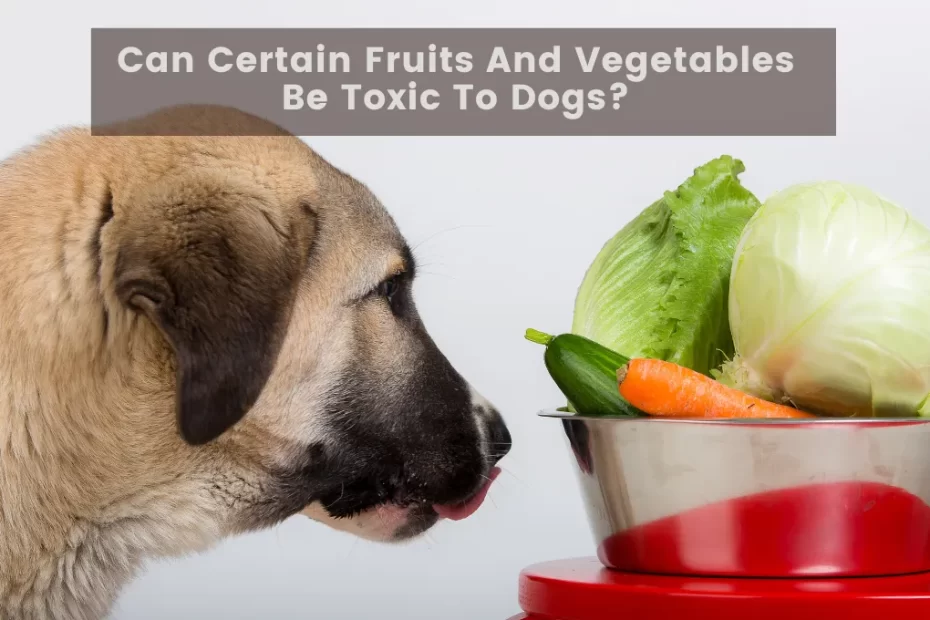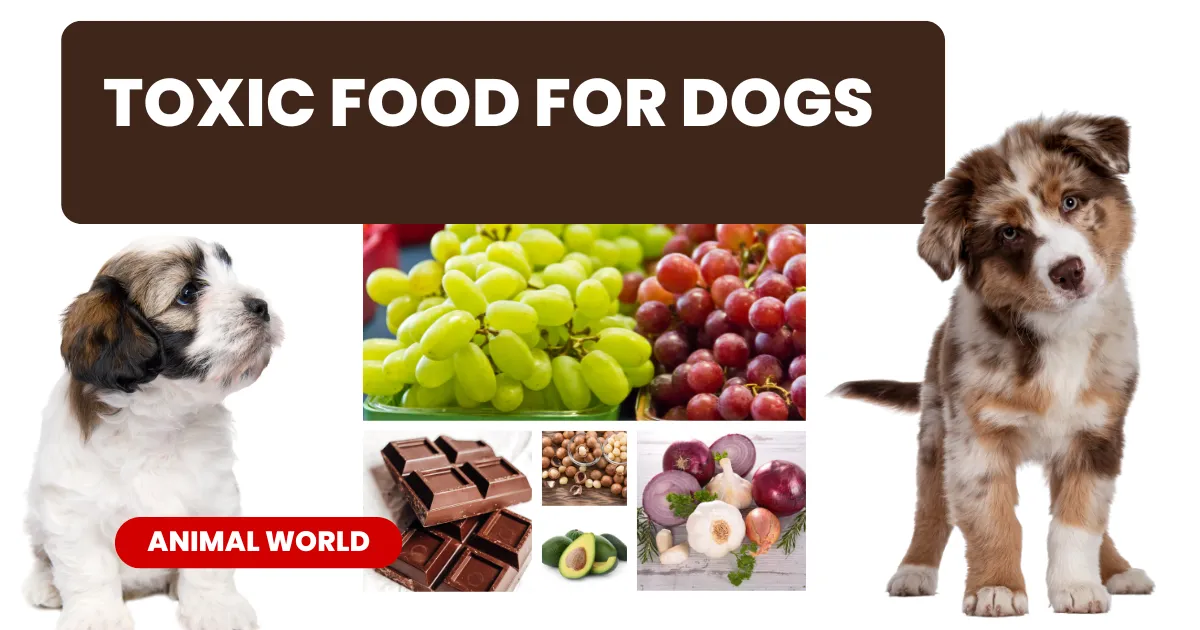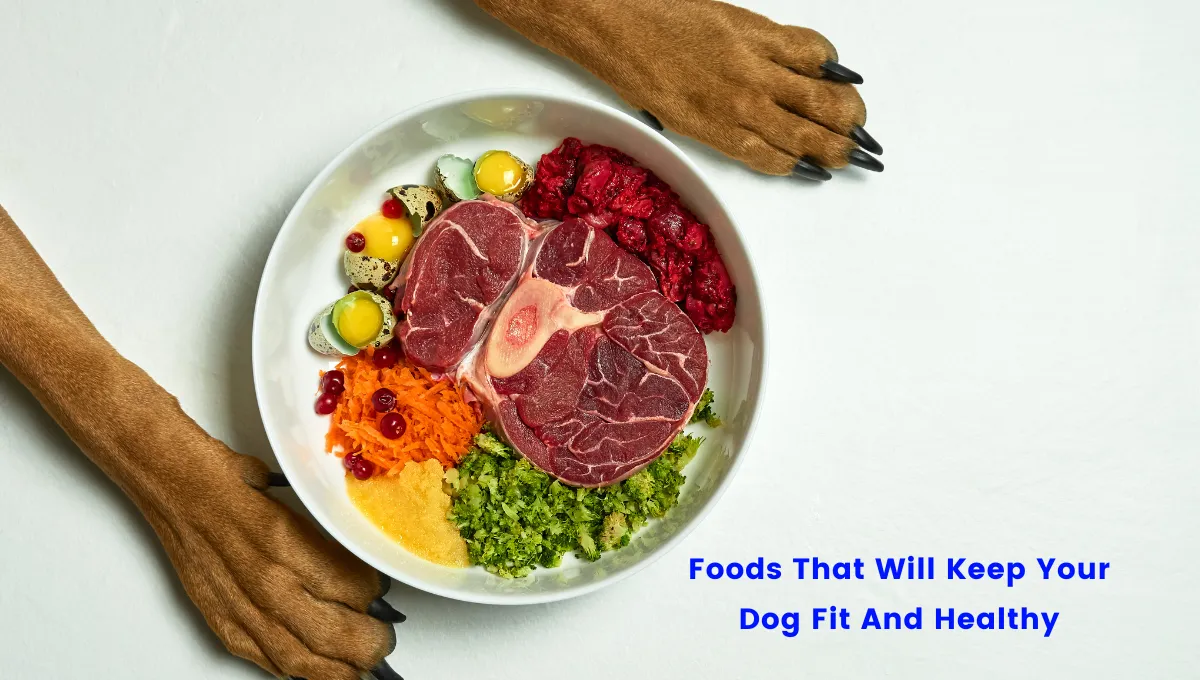Are you unknowingly putting your furry best friend at risk whenever you feed them? Many common foods that we humans enjoy can be toxic to dogs and cause serious health issues or even death. Awareness of these dangers is essential to keep your pup safe and healthy.
- What Are The Common Foods Harmful to Dogs?
-
Toxic foods alert for dogs: Essential information for pet owners
-
- What are some common toxic foods for dogs?
- How do I know if my dog has ingested a toxic food?
- Why are certain foods toxic to dogs but not to humans?
- What should I do if my dog ingests a toxic food?
- How can I prevent my dog from accessing toxic foods?
- What should I do if my dog shows signs of poisoning?
-
- Human Food for Dogs: What You Need to Know
- Source & Credits:
Many foods, from grapes and chocolate to onions and garlic, can harm our canine companions. Understanding these toxic foods and how they can affect dogs is crucial for responsible pet ownership. Educating yourself on these dangers can prevent accidental ingestion and keep your dog out of harm’s way.
This article will explore the most common foods harmful to dogs, their effects on canine health, and practical tips for preventing accidental consumption. With this knowledge, you can ensure your dog stays healthy and happy for years.
Can you imagine feeding your dog only food with no harmful ingredients? Well, now you don’t have to worry about that anymore because some foods are dangerous to dogs.
Dogs are susceptible creatures. They can quickly get sick from consuming certain types of food. This means they should eat only high-quality pet food. If you want to give your dog a nutritious meal, you should look into the ingredients of their food.
Before buying dog food, consider several things. These include the type of meat or fish, the amount of protein, the presence of additives, the fat content, and the grain source.
What Are The Common Foods Harmful to Dogs?
What Every Dog Owner Needs to Know
Grapes
Grapes head the list of fruits dogs can’t eat. Both grapes and raisins are highly toxic to dogs. Feeding even a few can cause kidney failure in some unlucky dogs. The toxin is as yet unidentified, but this doesn’t change the fatal facts.
Avocado
They contain a substance toxic to dogs, called persin. Symptoms of persin toxicity include vomiting and diarrhea. If your dog accidentally eats avocado, contact your vet for advice.
Apricots
The fruit is succulent and bursting with potassium and beta carotene, the pit is dangerous. Apricot pits are a source of toxic cyanide
Dates
Dates are high in fiber and sugar, so eating more than a few causes doggy diarrhea. They aren’t recommended as a dog treat
Figs
Figs contain fucosin and fisin which is irritant to some dogs. Signs of a reaction include heavy drooling, vomiting, and diarrhea.
Mushrooms
Mushrooms contain many toxins, and there are different types of poisonous toxins attached to specific mushrooms. All of which can affect many areas of a dog’s body. They can cause seizures, shock and even possibly death.
Chocolate & Anything With Caffeine
Dogs should never consume chocolate; they must NEVER EAT IT. While dark chocolate is the worst, all chocolate contains theobromine which is similar to caffeine
Toxic foods alert for dogs: Essential information for pet owners
What are some common toxic foods for dogs?
Common foods harmful to dogs include chocolate, grapes, raisins, onions, garlic, xylitol (a sugar substitute), alcohol, caffeine, avocado, and certain nuts like macadamia nuts.
How do I know if my dog has ingested a toxic food?
Signs of poisoning in dogs can vary depending on the toxin ingested but may include vomiting, diarrhea, lethargy, weakness, trembling, seizures, and difficulty breathing. If you suspect your dog has ingested a toxic food, contact your veterinarian immediately.
Why are certain foods toxic to dogs but not to humans?
Some foods contain compounds that are harmless to humans but toxic to dogs. For example, chocolate contains theobromine, which dogs metabolize more slowly than humans, leading to toxic buildup in their systems. Additionally, some foods contain substances like onions and garlic, which can damage a dog's red blood cells.
What should I do if my dog ingests a toxic food?
If your dog ingests a toxic food, contact your veterinarian or a pet poison helpline immediately for guidance. In some cases, inducing vomiting may be recommended if the ingestion occurred within a certain timeframe. However, treatment will depend on the specific toxin ingested and the severity of symptoms.
How can I prevent my dog from accessing toxic foods?
To prevent your dog from accessing toxic foods, keep all human foods and potential toxins out of reach, secure trash cans with lids, and be mindful of where you store household items like medications and cleaning products. Supervise your dog closely, especially around food and unfamiliar environments.
What should I do if my dog shows signs of poisoning?
If your dog shows signs of poisoning, contact your veterinarian or a pet poison helpline immediately for guidance. Provide as much information as possible about the suspected toxin, including when and how much was ingested, and follow their instructions for next steps.
Human Food for Dogs: What You Need to Know
Feeding your dog human food can be a tempting way to share your meals with your furry friend, but it’s important to understand which foods are safe and beneficial for dogs and which could be harmful. Here’s a guide to help you navigate this issue responsibly:
Safe Human Foods for Dogs
Carrots
- Benefits: Carrots are low in calories and high in fiber and vitamins. They make a great crunchy snack to help clean your dog’s teeth.
Apples
- Benefits: Apples are a good source of vitamins A and C and provide fiber. They can help freshen your dog’s breath.
Peanut Butter
- Benefits: Peanut butter is rich in protein and healthy fats. It can be a great treat and also helps in hiding medications.
- Cooked Chicken
- Benefits: Chicken is a lean protein that supports muscle health and is gentle on the stomach.
Sweet Potatoes
- Benefits: Sweet potatoes are high in fiber, vitamins, and minerals. They are gentle on the digestive system.
Human Foods to Avoid
Chocolate
- Danger: Contains theobromine, which is toxic to dogs and can cause vomiting, diarrhea, and seizures.
Grapes and Raisins
- Danger: This can cause kidney failure in dogs, leading to severe health issues.
Onions and Garlic
- Danger: These can cause gastrointestinal upset and damage red blood cells, leading to anemia.
Alcohol
- Danger: Alcohol can cause vomiting, diarrhea, difficulty breathing, and even coma in dogs.
Bones
- Danger: Cooked bones can splinter and cause choking or gastrointestinal blockages.
Source & Credits:
https://jetpetresort.com/blog/pet-safety/the-top-10-most-toxic-foods-to-dogs
https://www.aspca.org/pet-care/animal-poison-control/people-foods-avoid-feeding-your-pets
Feeding Your Furry Friend: Providing a Healthy Food 4 Dogs
Share this:
- Click to share on Facebook (Opens in new window) Facebook
- Click to share on Pinterest (Opens in new window) Pinterest
- Click to share on LinkedIn (Opens in new window) LinkedIn
- Click to share on X (Opens in new window) X
- Click to share on Tumblr (Opens in new window) Tumblr
- Click to share on Bluesky (Opens in new window) Bluesky



Making dog food at home? It’s crucial to balance proteins, carbs, and veggies! But avoid onions, garlic, and too much fat. Oh, and dogs love pumpkin!
Be Mindful of What You Feed Your Dog: A Guide to Avoiding Deadly Foods
Chocolate, grapes, onions, and even some nuts can pose serious health risks to your dog. Stay informed about these toxic foods, keep them out of reach, and educate your family members to ensure your canine companion’s safety. #dangerousfoodsfordogs #knowledgeispower #petcare #prevention #safetyfirst
Many pet owners might not realize that common foods like chocolate and grapes can be extremely harmful to dogs. It’s crucial to spread awareness so we can keep our furry friends safe!
Great post! Thanks for sharing this important information. I’ll be sure to keep these foods away from my furry friend.